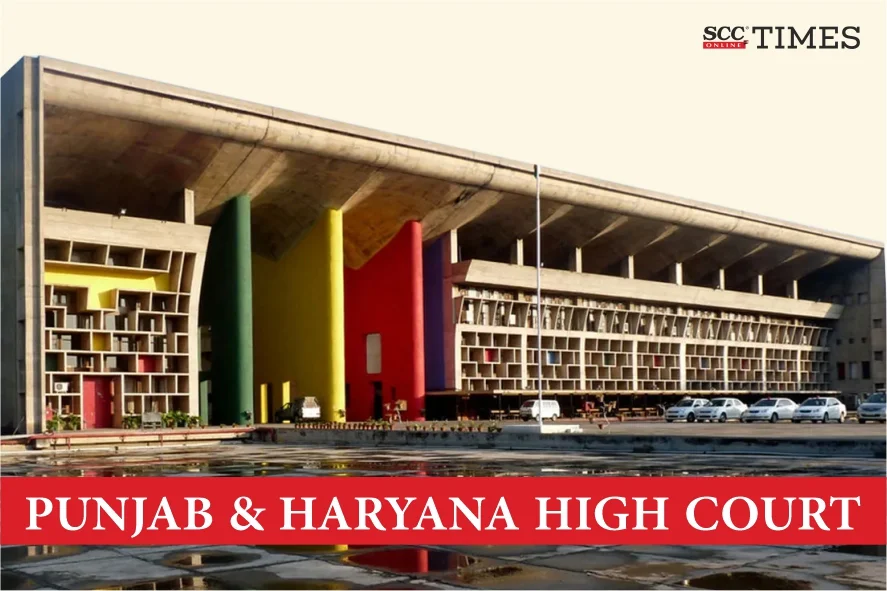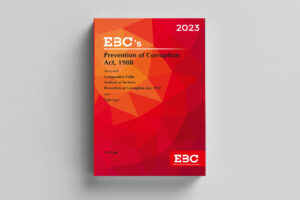Punjab & Haryana High Court: In a civil writ petition filed under Articles 226/227 of the Constitution seeking to setting aside the order whereby the petitioner was dismissed from service without holding inquiry under Rule 16.24 of the Punjab Police Rules, 1934 read with Article 311 (2) of the Constitution, Jagmohan Bansal*, J., held that the respondents without any logical reason dispensed with mandatory inquiry, hence, the impugned order was set aside.
The Court directed that the respondent shall be free either to conduct departmental inquiry after following due procedure prescribed by Punjab Police Rules or take appropriate decision after conclusion of criminal proceedings.
Background
In an instant case, the petitioner joined the Punjab Police as probationer Sub-Inspector on 20-05-2014. The respondent found that the petitioner had accepted illegal gratification from two of the accused under Section 21 of the Narcotic Drugs and Psychotropic Substances Act, 1985 (‘NDPS Act’). Subsequently, on 20-10-2017 an FIR was registered under Section 7 read with Section 13(2) of the Prevention of Corruption Act, 1988 and Section 59 of the NDPS Act at Police Station Harike, District Tarn Taran against the Petitioner and Head Constable (‘HC’).
The petitioner was dismissed vide Senior Superintendent of Police’s order , however, the co-accused HC was put under suspension. The petitioner preferred an appeal before appellate authority which was dismissed vide order dated 10-05-2019 passed by Inspector General of Police, Boarder Range, Amritsar. The appeal/representation before Director General of Police was also unsuccessful.
Analysis
The Court after perusal of contentions and facts said that it was evident that the petitioner was dismissed from service without conducting inquiry as contemplated by Rule 16.24 of Punjab Police Rules read with Article 311 of the Constitution and that this was not a first case where the jurisdictional SSP of the State had dispensed with the inquiry. The Court perused the second proviso to Article 311 (2) of the Constitution of India, 1950, which provides that inquiry may be dispensed:
(i) where person is dismissed or removed or reduced in rank on the ground of conduct which has led to his conviction on a criminal charge or
(ii) where the competent authority finds that it is not reasonably practicable to hold such inquiry or
(iii) where President or the Governor is satisfied that in the interest of the security of the State it is not expedient to hold such inquiry.
The Court said that the contention raised by the respondent on non-practicability of holding an inquiry, which was, ‘no witness on account of fear of petitioner would come forward’ was not the actual reason to dispense with the inquiry as the same reason was advanced in every similar case whether there is FIR against serving police officer. The Court also added that the witness of criminal case is bound to be key witnesses of the departmental inquiry and if the respondent despite being jurisdictional SSP was unable to secure presence of witnesses and create free and fair atmosphere, it is highly unbelievable that those witnesses would depose before the Trial Court against the petitioner.
The Court then stated that the respondent can dispense with inquiry if actually it is not practicable to hold inquiry, mere writing one line in the impugned order that it is not practicable to hold inquiry is not in compliance of mandate of either Constitution of India or Rule 16.24 of the Punjab Police Rules. The Court noted that the co-accused HC was suspended and not dismissed and thus, there was no reason to adopt different course in the case of petitioner, instead of straight away dismissing the petitioner, the respondent could have put him under suspension and thereafter conduct inquiry. The Court also noted that the HC was re-instated, even before the conclusion of criminal proceedings.
The Court held that the respondent dispensed with the mandatory inquiry without any logical reason, hence, the impugned order was accordingly set aside. The respondent should be free either to conduct departmental inquiry after following due procedure prescribed by Punjab Police Rules or take appropriate decision after conclusion of criminal proceedings. The Court clarified that the petitioner, as conceded, shall not be entitled to back wages.
[Baljinder Singh v. State of Punjab, 2024 SCC OnLine P&H 4150, Order Dated: 13-05-2024]
Advocates who appeared in this case:
For Petitioner: Anupam Bhardwaj, Advocate.
For Respondents: Pawan Kumar, DAG, Punjab.








